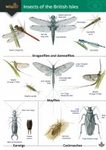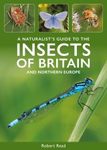About this book
Reproduction is one of the most inherent tasks that all living organisms are actively involved in. It forms the backbone of their existence with all evolutionary energies directed over billion years of creation into maximizing reproductive effort. For so simple and directed a need such as maximizing reproduction, it is interesting to see how much diversity and complexity exists in this task. Each organism despite having the same end goal employs different strategies. The complexities, intricacies and strategies of successful reproduction while being extremely fascinating are equally befuddling.
Reproductive Strategies in Insects provides an expansive critical look at the reproductive strategies of the most diverse group of animals, the insects. Insects that inhabit myriad niches in all ecosystems except the oceans, show the most diverse reproductive strategies ranging from simplest to most complex. Reproductive strategies, viz., search for mates, number of mates, display of mate quality, assessment of mate quality, acceptance of mate, rejection of mates, forced copulations, the fight for paternity pre, during and post copula, the modulation of paternity, ovipositional strategies and parental care are described in detail in this book. Also, each strategy is analyzed in relation to its morphological, physiological, ethological, ecological and evolutionary aspects.
Features:
- Covers a wide variety of reproductive strategies,
- A detailed step by step description of reproductive strategies.
- Discusses morphological, physiological, ethological, ecological and evolutionary aspects.
- Modulation of these strategies and responsible modulatory factors are also discussed.
- Well-illustrated.
- Recent research results and probable future research directions.
This is a reference book for ethologists, biologists studying behavioural evolution and entomologists. It may also be used as a textbook for a graduate-level course in behaviour.
Contents
- Modes of Reproduction / Subramanian S., Boopathi T., Sagar D
- Sexual Reproduction / Bhupendra Kumar and Omkar
- Parthenogenesis / Marcela S. Rodriguero
- Mating Systems / Shriza Rai, Omkar and Geetanjali Mishra
- Copulatory organs / Fabiano Stefanello and José Ricardo Inacio Ribeiro
- Courtship / Ahmad Pervez and Omkar
- Precopulatory sexual selection / Ankita Dubey, Omkar and Geetanjali Mishra
- Postcopulatory sexual selection / Swati Saxena, Geetanjali Mishra and Omkar
- Sexual Coercion / Shashwat Singh, Priya Singh, Geetanjali Mishra and Omkar
- Sperm Competition / Adolfo Cordero-Rivera
- Cryptic Female Choice / Payel Biswas, Aradhya Chattopadhyay, Shampa M. Ghosh
- Semiochemicals / Suresh Nebapure, Soumia P. S., Yogesh Yele, Guru Pirasanna Pandi G. and Prasannakumar, N.R
- Reproductive strategies in Aphids / Rajendra Singh and Garima Singh
- Reproductive strategies in Parasitoids / Richa Varshney, Omprakash Navik and Sushil K. Jalali
- Oviposition strategies / Desh Deepak Chaudhary, Bhupendra Kumar and Omkar
- Trophic Eggs / Richard Evans and Michael J. Grodowitz
- Parental Care / Joël Meunier, Maximilian Körner, Jos Kramer
Customer Reviews
Biography
Prof. Omkar, FNASc, has been associated with teaching for about 35 years and research for more than 42 years. He is Former Head, Department of Zoology, University of Lucknow, Lucknow-226007, Former Coordinator, UGC-SAP (DRS-II), DST-FIST, DST-PURSE, Centre of Excellence, Govt. of UP, programs. He has worked on 10 more projects for state/central funding agencies. He specializes in Environmental Toxicology and Entomology, with particular reference to Insect Pest Management. He is also an Associate Editor, International Journal of Tropical Insect Science, Springer Nature and Chief Editor, Journal of Applied Bioscience, besides being President of the International Society of Applied Biology.
He is a recipient of several awards, like Saraswati Samman by the Department of Higher Education, Govt. of UP; Prof. T N Ananthakrishnan Foundation Award, Rescholar Award of Excellence in Agricultural Entomology by Association of Entomologists, Prof. G. S. Shukla Gold Medal by The Academy of Environmental Biology, Dr S. Pradhan Memorial Lecture Award by The Division of Entomology, IARI & The Entomological Society of India, ACCLAIM and Uddeepan awards from the University of Lucknow. He is a Fellow of The Entomological Society of India, Zoological Society of India, Society for Biocontrol Advancement and Fellow of The National Academy of Sciences India (FNASc), besides many others. He has 16 books to his credit, like Pesticides, Man & Biosphere, Ecofriendly Pest Management for Food Security, Industrial Entomology, Pests & Their Management, Sucking Pests of Crops, Polyphagous Pests of Crops, Reproductive Strategies of Insect Pest Management, etc. He has published 235 Research papers, 10 Reviews, 40 Reviews as Book chapters, 17 Popular Science articles. Prof. Omkar has guided more than TWO dozen PhD students. He has visited the School of Biological Sciences, University of East Anglia (2006) for three months and Department of Zoology, University of South Bohemia and Czech Academy of Sciences, Ceske Budejovice Czech Republic (May 2016).
Dr Geetanjali Mishra has been associated with teaching for about 14 years and research for more than 21 years. She is a passionate behavioural ecologist and evolutionist and ardent entomologist. She has been working on insect behaviour and biology for the past 21 years using ladybird beetles as her model of choice. She is a Member, the Executive Council, Indian Society of Evolutionary Biology. She is also an Associate Editor, Journal of Applied Bioscience, and reviews extensively for journals of repute in the field of entomology, behaviour and ecology.
She has been a Commonwealth Academic Fellow at the Centre for Ecology & Conservation, University of Exeter, Penryn Campus, UK. She has been a university Gold Medalist during her post-graduation in Zoology and has also been awarded Prof. T N Ananthakrishnan Young Scientist Award and Prof. B.V. David Women Scientist Award. She has published one proceeding, one technical bulletin, 85 Research papers, 12 reviews as book chapters and five Popular Science articles. Dr Mishra has guided five PhD students.

































